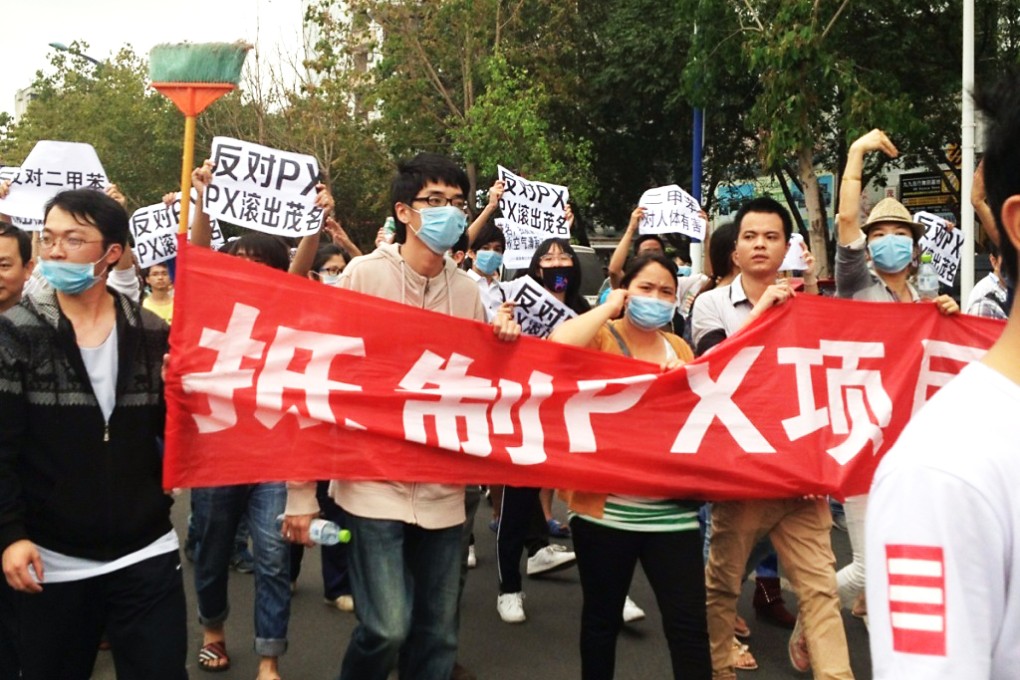New | Violence, arrests in Guangdong city of Maoming as locals rally against petrochemical plant

A Sunday rally against a petrochemical plant in the southern Chinese Province of Guangdong was instigated by “a group of outlaws,” the Maoming city government said, reacting to a rare show of public discontent in a city plagued by corruption scandals.
Photos uploaded to social media showed several people lying seemingly unconscious in pools of blood on the southern city’s streets. The participants in the protest speak of arbitrary violence by members of the police against peaceful demonstrators.
The Maoming government said on Monday that some demonstrators provoked police action by throwing rocks and water bottles at public facilities around 10.30pm on Sunday.
The protesters were demonstrating against the addition of a 3.5 billion yuan (HK$4.4 billion) paraxylene (PX) plant to the city's existing petrochemical operations jointly run by the local government and state-owned oil giant Sinopec. A local spokesman for Sinopec, Asia’s biggest refiner, could not be reached by phone and email on Monday morning.

The local government had warned against the demonstration on Sunday morning, calling it “illegal” in a statement on the municipal government website.